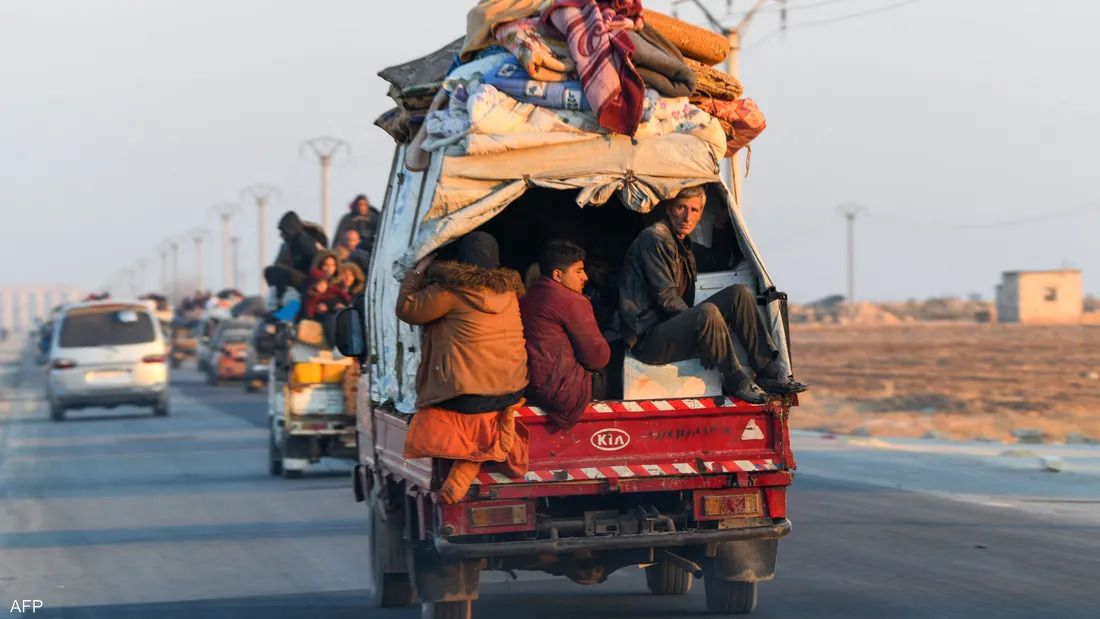
The Lebanese ministerial committee tasked with resolving the Syrian refugee crisis has finalized a comprehensive repatriation plan, which it intends to present to the Cabinet for approval in the coming days, Asharq al-Awsat reported on Monday.
Deputy Prime Minister Tarek Mitri, who heads the committee, said the first phase of the voluntary return plan is expected to begin before the start of the academic year in early September. The government estimates that between 200,000 and 300,000 Syrian refugees could be repatriated during this phase, depending on how smoothly the operation proceeds.
Mitri explained in an interview with the Saudi newspaper that the plan is structured in stages and acknowledges that “a large number of Syrians, for various reasons, have already begun returning to their country.” However, he noted that no accurate data exists on the actual number of returnees so far.
A recent survey conducted by the United Nations High Commissioner for Refugees (UNHCR) found that many Syrian refugees have expressed a willingness to return. Mitri also pointed out that the current Syrian administration, led by President Ahmad el-Chareh, has not objected to their return, though it has expressed concerns over living conditions and housing availability, that Mitri said make a phased voluntary return “feasible.”
Organized and Unorganized Returns
The return process will be divided into two categories: organized and unorganized. Under the organized return scheme, refugees will register their names and be transported via buses to Syria, receiving $100 per person in assistance. Those opting for unorganized returns will arrange their own travel but will still receive the same financial support.
In a further incentive, the Lebanese General Security Directorate will waive fines for refugees whose residency permits have expired, provided they do not return to Lebanon after departure.
Mitri added that several donor agencies and foreign governments have pledged to assist with reintegration efforts in Syria, with the goal of discouraging economically motivated re-entry into Lebanon. He also emphasized that forced mass deportations are not part of the government’s strategy.
Refugee Statistics
Lebanon is currently home to approximately 1.4 million Syrians, including 717,657 officially registered with the UNHCR. According to the agency’s latest figures, 507,672 refugees have returned to Syria from neighboring countries as of December 8, 2024, of whom 172,801 departed from Lebanon.
For years, Lebanese political factions have called for a shift in international aid policy, arguing that financial support should be reallocated to those returning to Syria rather than sustaining long-term displacement in Lebanon.
Declining Services
Compounding the urgency of the repatriation effort, UNHCR recently informed Lebanon’s Ministry of Health that it will halt healthcare support for Syrian refugees beginning in November 2025 due to a significant drop in donor contributions.
UNHCR spokesperson Lisa Abou Khaled confirmed that hospital care funding will be fully withdrawn by year’s end, while primary healthcare services have already been suspended, impacting an estimated 80,000 refugees.
Cash assistance programs have also been scaled back significantly. “Since January, our ability to reach beneficiaries has dropped by 65%,” Abou Khaled told Asharq al-Awsat, adding that aid to 350,000 vulnerable refugees has already been discontinued, with 200,000 more at risk of losing support after September.
Educational programs will also be affected. UNHCR will end its literacy and basic numeracy programs for out-of-school refugee children by July 2025, a move expected to impact around 15,000 children. The agency will also cut 30% of its workforce this year, leading to the loss of more than 150 key staff members.
UNHCR Eyes Voluntary Return of 400,000
Despite the challenges, UNHCR and its humanitarian partners in Lebanon have crafted a joint action plan aimed at enabling the voluntary return of up to 400,000 Syrian refugees, including 5,000 Palestinian refugees from Syria, throughout 2025. This plan includes logistical support, assistance with documentation, and transportation for returnees.
Abou Khaled acknowledged that the current context may offer a “positive opportunity” for a substantial number of returns but stressed that significant humanitarian needs persist inside Syria.
Furthermore, she emphasized the need for international support to ensure that returnees have access to education, housing, livelihoods, and humanitarian aid, warning that many refugees remain hesitant to return amid ongoing uncertainties.



Comments